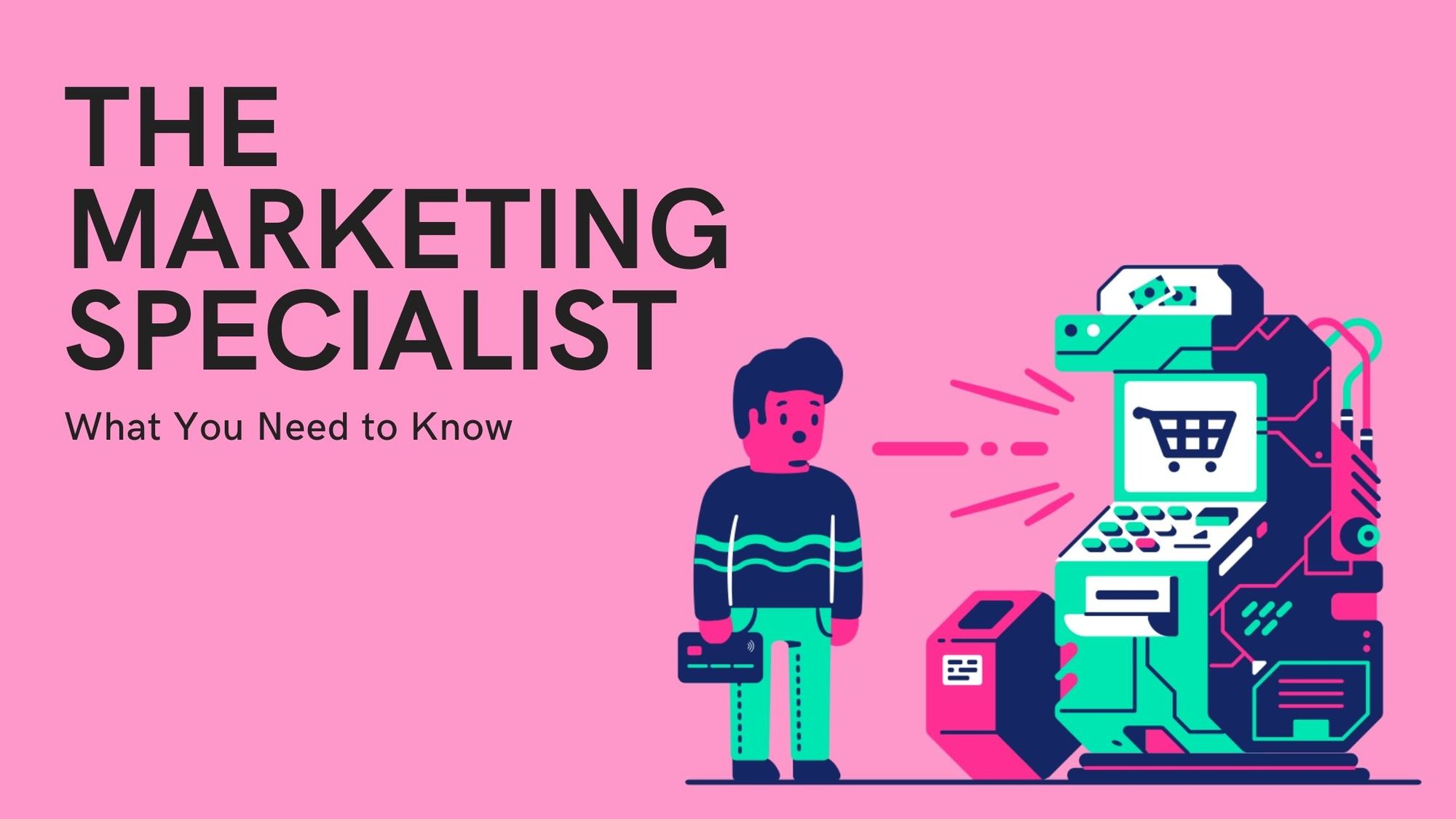Header illustration by Lazarus_al from Ouch!
Beginning any career can be difficult and quite daunting. Perhaps you have devoted years of your life to some area, but now you regret the choice you made in your youth. Or, on the contrary, you’re just graduating from college and are ready to break into a world of new opportunities. Whatever the reasons, you have to spend more than one day to find what you like and soak up a wealth of new information.
A career in marketing is not an exception. It should be borne in mind that the absence of a degree in this sphere doesn’t mean that you can’t join the marketing stream. It’s a field that makes you adapt to the trends and keep abreast rather than adhere to the knowledge gained from textbooks written a decade ago.
It’s an area of rapid change and steadily growing demand. As the recent projection of the U.S. Bureau of Labor Statistics states the employment of marketing managers will show a growth of 7 percent from 2019 to 2029, which is more than any other profession can boast of.
So, what tips will help you if you decide to give marketing a shot? Below, I’ll gladly share recommendations that can guide you as you get started with your marketing career path.
What Does a Marketing Specialist Take Charge of?
A marketer is a specialist who promotes the goods and services of a company and lays the foundations of such a sales system that will make the company prosperous. The crucial part of their duties is conducting market research to ascertain the needs of potential customers to further indulge their every whim.
Marketers’ daily responsibilities include:
- Analyzing the sales market. Marketers investigate the target audience that may need a product or service from their company. They evaluate the purchasing power of customers, as well as their habits and preferences to properly build marketing communication with them.
- Conducting competitive intelligence. Where do competitors excel and how are our products different from theirs? What does the competitors’ advertising strategy look like and what channels of communication with customers do they use? Marketers study all aspects of competitor activities to make the best offer on the market.
- Formulating an assortment of goods and their prices. Smart marketers were the ones who came up with the idea of selling cars under two different brands. Namely Toyota for the middle class and Lexus for the premium segment of customers so that the latter feel their high status. The same marketers decided not to raise the price of a product, but to reduce the volume of a package. That said, marketing teams usually work in close collaboration with product development teams and are responsible for presenting the product in the most beneficial way.
- Building a sales system. Marketers cogitate about the marketing chain to generate demand and stimulate product sales. They think about advertising, packaging, brand perception, communication channels with customers, product placement on store shelves, online presentation of goods, and other aspects of sales. They analyze how various tweaks such as Magento 2 migration affect website performance and leave a mark on conversions. The goal of marketing is not one-time sales. Instead focus on generating consistent revenue for the company, building customer retention, and generating a steady demand for the company’s products.
- Conducting exhibitions, seminars, and presentations of the company’s products and services. This can include building a strong content strategy, including cross-channel product presentation (on social media, in ads, and so forth).
5 Major Steps Towards a Marketing Career
Now let me bring forward some practical advice on which steps to take to become a marketing specialist.
1 – Determine the Field of Your Interest
There is no ceiling to what you can do in the marketing industry. As mentioned earlier, the scope of career paths ranges from SMM, PR, marketing content, to analytics, team management, and even event organization. Marketers can boast of not only a variety of career paths but also a variety of tools such as Google Analytics, Semrush, or Moz.
To get a big picture, you can start with reading professional blogs, watching thematic videos, and listening to thought-provoking podcasts. Thanks to this, you can explore what the requirements are and learn how to meet them. You may stumble upon tips from the pros, how they got their start and which tactics worked best for them.
Generally, blog, podcast, and YouTube channel owners also offer courses where you can improve your skills and take the first step towards a marketing career.
It is better to choose one direction, learn the basics, and do your best in this area. And if you want, you can later switch to another one (the basics are similar everywhere, the only difference lies in the tools).

2 – Explore Online Courses
Hence, you are well packed and can tell right off the bat what skills and experience are required. You’ve even discovered some people who inspire you and, most importantly, offer courses on what interests you: great! You are now ready to start learning, interacting with your teacher and fellow students, and not just passively listening and reading.
So even for free, you can discover a plethora of beginner marketer courses that are a good start to learning the basics. If you have any unclear points, you can always contact the moderators and mentors, as well as watch additional videos on YouTube.
Large educational platforms such as Coursera, Udemy, and Lynda provide a scope of general topic courses. If you want to dig deeper into some tools, Google, Canva, and many others will be sources of a ton of valuable information for you.
Let’s take an example of courses from LinkedIn which is called Lynda. You can apply for a separate course on a specific topic or choose learning paths. The latter are chains of courses related to a subject or profession presented by different experienced professionals.
3 – Consider Volunteering and Saturate Your Portfolio
At this stage, you have completed the courses, received certificates, and would like to put your knowledge into practice. Nothing speaks better for itself than real professional experience and a portfolio.
Learning on the job on a voluntary basis is a neat move. This is especially true for senior students or recent graduates. Some companies are happy to recruit newbie marketers and actively train them for 2-6 months. They hold entire competitions (since not everyone will be able to stay at the enterprise). In turn, you can acquire knowledge from hands-on experience and competent specialists, become part of a company's projects, and learn how a particular marketing sphere functions.
This practice is popular among international corporations, media holdings, and big businesses. In them, an internship can also be represented as a mentoring program, meaning when 2-3 interns are assigned to one specialist and they study at the same time in equal conditions. Professionals may tell you what you lack so that you can polish your marketing skills up.
4 – Make Your Resume Outstanding
You’ve carved your way and put long hours into self-education and improvement. You’ve worked quite enough without being paid or just enough to foot your bills. Now you crave to expand your skillset and wallet capacity.
If you haven’t got a job offer from your volunteering or mentoring programs, it doesn’t entail that there aren’t any other companies willing to pay you for your knowledge. To get the job, you get down to writing your CV and need to consider the following:
- Make your resume easy to read, so employers can see right away that you are the person they are looking for. Limit yourself to a maximum of two resume pages and focus on your latest and most relevant experience as well as unpaid work that shows off your skills.
- Be honest and highlight what you’ve actually accomplished. Use specific numbers (how many leads you nurtured, how many products you were able to sell, what ROI you achieved, etc) and what tools you learned to leverage.
- It’s a no-brainer that your resume should be free of grammar mistakes and misspellings. So, proofread and double-check your resume as neglect can lead to your failure to get a job. Incorporate correct contact information, i.e. name, address, email, and phone number, and place it at the top of the page.
5 – Start Attending Interviews
Job interviews are very similar to the process of selling, but here you represent yourself in the best way possible. You interact with new people, promote yourself and your skills, and are put under scrutiny whether you are suitable enough. Let alone that you have to radiate enthusiasm and placidity.
Here are some do’s and don’t that will help you ace a marketing job interview:
- Conduct thorough research of the company, as this is your target audience at this hour and you have to measure up to their needs.
- Analyze the most frequently asked questions in your marketing field and prepare the responses.
- Arrive in time and dress appropriately (even if the interview is held online).
- Don’t resort to texting messages and browsing the internet in front of the potential employer.
- Answer the questions composedly, keeping eye contact and honestly without exaggerating your previous experience.
- After the interview, send a thank-you note confirming once again your interest in the position.
Major Takeaways
To become a good marketer, you should go beyond just one or even two courses. As in any other endeavor, practice comes first in this sphere. The only thing is that you shouldn’t try to study all aspects of marketing at once, as this is an extensive science and it is easy to get overwhelmed by the amount of information.
If possible, it is better to undertake a relevant job, attend thematic events, listen to webinars, communicate with experts, and undergo a mentoring program. It will require a great deal of effort, but it will work!
Guest post by Kate Parish, Chief Marketing Officer at Onilab with over 8 years of experience in Digital Marketing in the sphere of eCommerce web development. Kate always aspires to broaden her competency in line with cutting-edge global trends. Her primary areas of professional interest include SEO, branding, PPC, SMM, Magento PWA development, and online retail in general.


